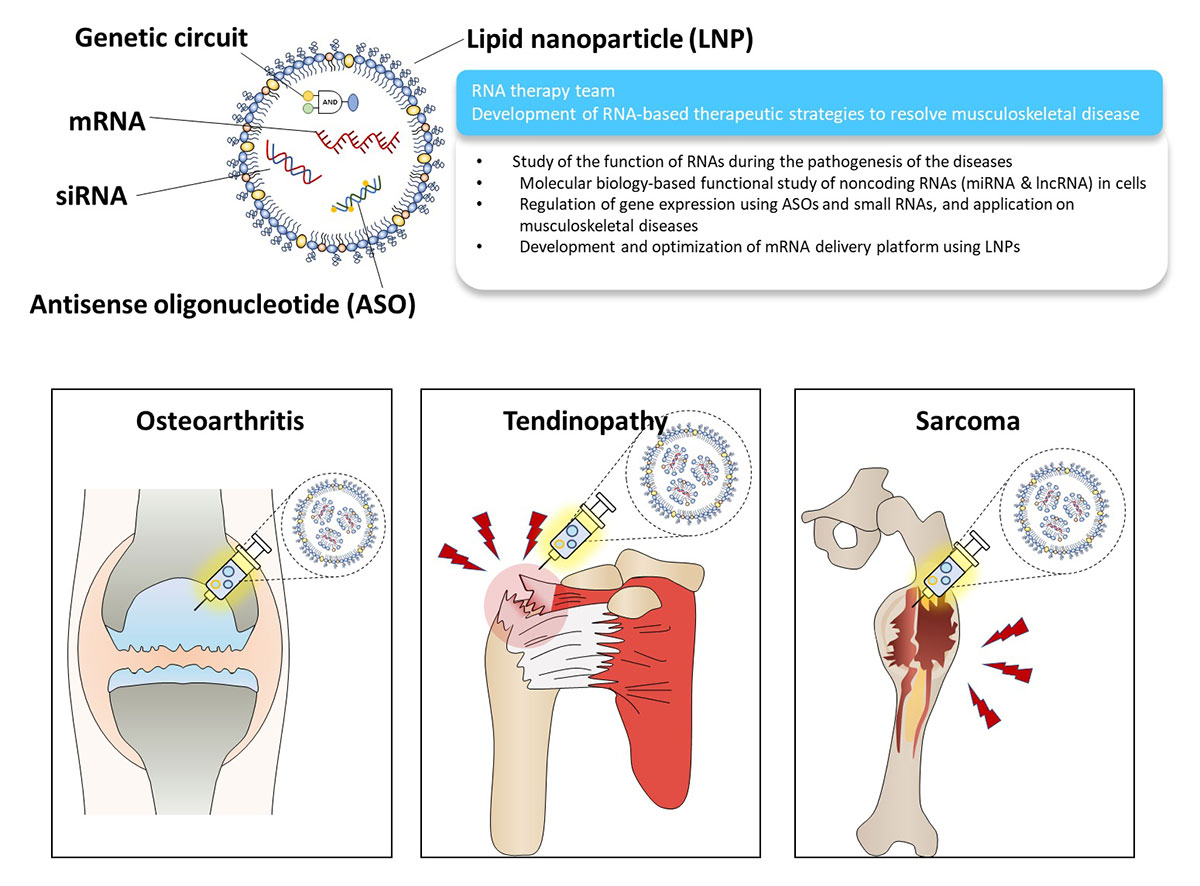Jin-Hong Kim
Research Aims
Degenerative diseases affecting the joints can have a significant impact on the quality of life of older individuals. Despite the remarkable advances in medicine, there is still no fundamental way to reverse joint damage, leaving patients reliant on pain relief and surgical treatments as the disease progresses. Our team is committed to developing novel therapies that challenge the current paradigm by unlocking the regenerative potential of connective tissue. By challenging the current paradigm, we're working towards new treatments that could potentially reverse joint damage and restore mobility, so that everyone can live life to the fullest.
Diagnosis
We develop diagnostic and prognostic prediction models for osteoarthritis, rotator cuff disorders, and sarcoma through the identification of biomarkers and the application of epidemiological, machine learning, and artificial intelligence methodologies.
Therapeutics
Treatment platforms under development include: 1) RNA therapy, 2) immunotherapy 3) genetic circuit design 4) engineered stem cell therapy, and 5) next generation chemical and antibody drugs
Research tools
Our research infrastructure encompasses patient cohort examination, therapeutic target identification, therapy design, genetic analysis using animal disease models, histological/radiological evaluation, and behavioral assessment (exercise capacity, pain). A multidisciplinary team of molecular biologists, bioengineers, bioinformaticians, AI data scientists, and medical professionals work in close collaboration to conduct this research.

 Center for RNA Research
Center for RNA Research